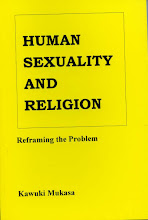"Anything other than [biblical truth] is opinion. And when we enter the realm of opinion, we give a subjective element to it rather than an objective element to it. In other words, is truth objective or is it subjective?" The Rt. Rev. Keith Ackerman, Diocese of Quincy, Illinois USA.
But "objectivity" is unknowable outside our subjectivity. What we call "objective truth" is in fact conventional truth arising from the collective testimony of our subjective experience and knowledge. Framing it as an either/or question is misguided.
Subscribe to:
Post Comments (Atom)





1 comment:
Hi, Isaac. Good to know you are doing well!
In response to your latest post, you may know the analogy of the three baseball umpires. One is the naïve realist (“I calls them as they are”), the critical realist (“I calls them as I sees them”) and the radical constructionist (“They ain’t nothing till I calls them”).
I agree that Bp Ackerman sounds like a naïve realist (“it is perfectly clear what the Bible says”), but I wonder if you are tending to the opposite extreme (“it only means what my community decides it means”). If his option tends to ignore the place of the community and human fallibility (and sin!), yours can tend to complete agnosticism, with no possibility of communication across cultures.
I think there is a place for critical realism (a term I learned from Tom Wright, I confess), that is, to say, “In our community, as far as we can tell, this is what is true—but we say that humbly and tentatively, knowing our limitations, our sinfulness, and our prejudices, and therefore open to correction.” That allows for the possibility of dialogue that is more than talking past one another, and for moving towards “truth”.
What do you think?
PS. Your statement about objectivity sounds remarkably like a statement of “objective truth”!
Post a Comment